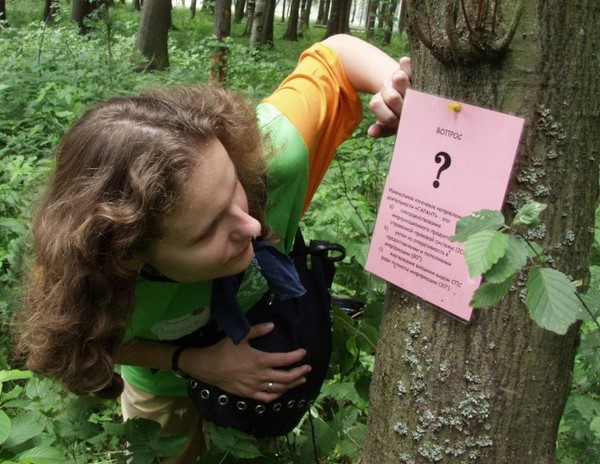The World Quests for young compatriots were launched in 2016. According to their organizers, the games will be held in 62 countries, involving 1.5 to 2 million people from 514 cities. The series will conclude with a meeting of winners at the international festival “We Are for World Peace” in Kiten, Bulgaria, in August 2016.
A quest is a heavily plotted adventure game. Quests are especially popular with youth. Every quest includes goals to be accomplished in a limited amount of time through various tasks (thanks to participants' sense of logic, dexterity, etc.) and clues. For instance, teams have to get out of a room, find an object or get to a place to complete a task.
Members of the
2016 World Quests will travel the paths of Nikolai Gogol’s characters from
Evenings on a Farm Near Dikanka, with a Christmas dinner set as their destination. They will then take part in the search for the Amber Room and go to the Reichstag building like Soviet soldiers did on 9 May 1945. They will also have to solve puzzles inspired by
The Master and Margarita, conduct an extreme “Professor Preobrazhensky experiment” from
Heart of a Dog and perform other tasks involving film and book characters.
The 2016 World Quests were initiated by a group of compatriots from Austria, Belarus, Norway and Russia entitled “Grani.” The first round of the World Quests involving teams from 37 countries was successfully held in late January 2016 with support from a Belarusian youth project. It was comprised of two games inspired by Gogol’s Evenings on a Farm Near Dikanka and The Fair at Sorochyntsi, as well as live-action and animated films based on the books. The organizers decided to let all contestants continue, as new participants from other countries will emerge during the second round.
The second round of the 2016 World Quests, entitled “Manuscripts Don’t Burn” and dedicated to Mikhail Bulgakov’s 125th anniversary, consists of three games based on the writer’s The Master and Margarita and Heart of a Dog. It will take place in May. The third round will be held on 22-26 June, with the Great Patriotic War as its overarching theme.
The new games for young Russian-speaking people are different from other quests which have become a popular and expensive form of entertainment around the world: Russian compatriots can take part in the 2016 World Quests for free. All that is required is at least one Internet-connected device per team.
Every game has two rounds. The first day is a fight, with teams following an outdoor path and each city playing by a convenient schedule. The second day is for brainstorming, with all teams working online at the same time. The first team to solve all puzzles wins.
The 2016 World Quests aimed at uniting Russian-speaking youth around the world and inspiring them to be more socially active stemmed from a game invented in 2001 by Minsk resident Ivan Maslyukov, also known as Im, member of the Grani project.
“I was on a trolley bus,” Ivan Maslyukov says, “thinking about the movie ‘The Game’ starring Michael Douglas. The movie is about a successful and disenchanted billionaire banker who receives an unusual birthday gift from his brother—a game. His life is at stake and he has no idea about its rules or goals. I thought we could make a similar game, the only difference being that its participants would know what they were aiming for. After all, life is different from movies, and we can’t have another go after falling from a skyscraper.”
The game gained popularity in Belarus within years. Maslyukov decided to create a global project of his own in 2004. He gathered a number of games under the “Encounter” trademark. The project brought together gamers from Belarus, Russia, Ukraine, Lithuania, Poland and France. Other European countries with Russian-speaking youth gradually started joining the system as well.
“The 2016 World Quests for compatriots mark Encounter’s evolution towards intellectual games,” says Konstantin Glushakov, Grani project’s coordinator and leader of the programmer group working on Encounter’s technical platform. “We know that thinking skills can develop just like any other human skill. We know how to develop them: through artificially constructing problems, tasks and situations without ready-made solutions. People can only truly think when they cannot use familiar behavioral patterns. Our literature and film-based quests in 2016 are full of situations in which people have to solving problems in the most efficient way.”
The organizers believe the 2016 World Quests support the idea of nurturing people of the future—people who solve unusual issues in an efficient and creative way and remember their roots.
“The 2016 World Quests,” Ivan Maslyukov says, “present an alternative to the well-known world view of everything in life happening by itself. By playing the game you come to a simple but very important conclusion: you are the only person responsible for what happens in your life.”
It is expected that the Russian writer Yevgeni Grishkovetz, the Finnish actor Ville Haapasalo and other famous people, as well as WWII veterans from different countries, will take part in the games as players, headliners and experts.








